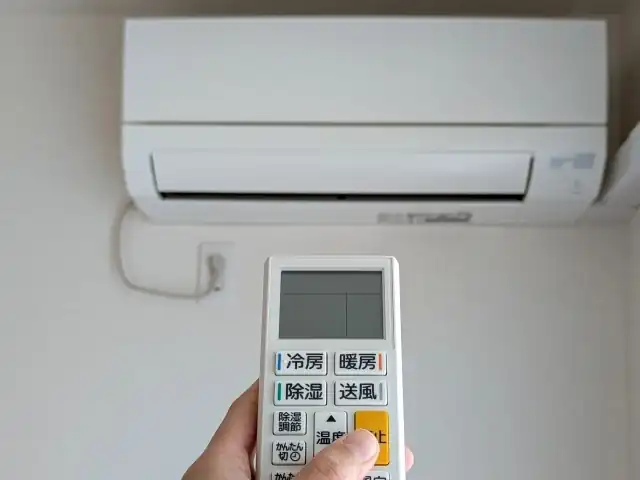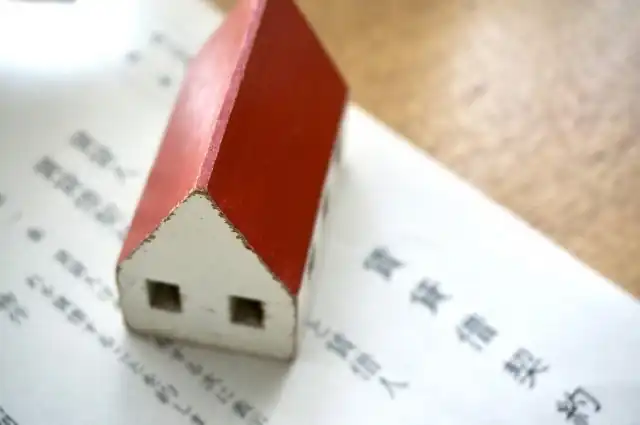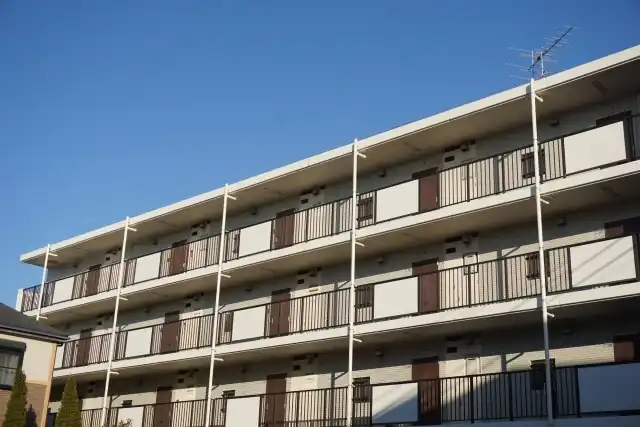Everyone wants to minimize issues in their rental housing as much as possible. However, even with a peaceful, everyday life, it’s not uncommon to face problems, such as “The noise from the apartment above keeps me awake at night” or “The air conditioner isn’t working properly.”
In this article, we will guide you on where to seek advice if you encounter issues in your rental housing, as well as provide tips on how to prevent such problems from arising. Consider this helpful reference if you’re facing difficulties in your rental home.
Village House offers over 1,000 properties across Japan. If you’re looking for a new place to call home, be sure to visit our website for more information.
Malfunction of equipment in rental housing

If you experience an issue with your home appliances, such as the air conditioner or heated toilet seat, start by checking the instruction manual. The manual often includes troubleshooting steps that can help you resolve the problem, allowing you to fix it on your own.
If you don’t have the instruction manual, visit the manufacturer’s official website. Many companies offer product manuals online. To make your search easier, be sure to have the model number on hand before you begin looking for information.
Reach out to your landlord or property management company for assistance if the appliance is broken. You can find their contact information in your rental contract.
Please note that the real estate company you worked with when finding your rental property primarily acts as an intermediary between the landlord and tenant. It is separate from the management company responsible for overseeing the property’s maintenance. However, in some cases, the real estate company may also handle management duties, so be sure to review your rental contract for clarification.
The repair costs can vary depending on the terms of your contract. Generally, repair costs are covered by the landlord, unless the damage is due to improper use, such as failing to follow the instruction manual, or intentional damage caused by the tenant.
However, it’s important to note that the tenant may be required to cover repair costs for equipment not listed as part of the facilities in the contract (such as items left behind by a previous tenant), even if the issue is due to normal wear and tear. Always check the details of your rental agreement to understand your responsibilities regarding repairs.
Common troubles with neighbors

Noise troubles
Noise is a common issue in apartment complexes. While activities like watching TV or listening to music at high volumes, playing musical instruments, and speaking loudly late at night are clearly disruptive, even everyday sounds can become a problem depending on the situation.
Everyday sounds, such as children’s voices, footsteps, the noise of a vacuum cleaner or washing machine, doors opening and closing, toilet flushing, or even the sounds of a television or conversation, can become disruptive depending on the volume, time of day, and the sensitivity of the listener. In other words, the line between ordinary sounds and noise varies from person to person, making it easy to unintentionally cause a disturbance to those around you.
Troubles caused by pets or garbage odors
Even if pet owners are not bothered by it, residents without pets may find certain issues unpleasant, especially when it comes to odors. A common problem arises when pet owners fail to follow proper guidelines for disposing of pet litter, leading to unpleasant smells and potential conflicts with neighbors.
Bad odors from garbage can also lead to problems. For example, food waste left on the balcony can create unpleasant smells, or if a room becomes cluttered with garbage, the odor may seep out and affect neighboring areas.
Troubles caused by violations of etiquette
Violating common etiquette, such as speaking loudly in the entrance, hallways, or elevator, leaving bicycles in undesignated areas, or storing flammable materials near the entrance, can lead to conflicts with neighbors. Since shared spaces are used by all residents, a lack of consideration for others can easily cause problems.
Smoking on the balcony can create unpleasant odors that disturb neighboring residents. The smell can cling to your laundry, and during seasons like spring and summer when windows are often open, the smoke can even enter your room. Smoking in common areas is not only inconsiderate, but it may also violate management regulations.
Common rental housing disputes with landlords

Many disputes with landlords arise over moving-out costs. The Ministry of Land, Infrastructure, Transport, and Tourism has issued guidelines regarding the responsibility for restoring properties to their original condition. These guidelines are intended to help prevent issues with rental contracts and provide a summary of general standards based on contracts, court cases, and practical transactions.
However, tenants are often asked to bear a disproportionate burden, leading to disputes. If you have a contract, the contents of the contract take priority. So, it is crucial to carefully review any special provisions before signing.
For more information on moving-out costs, please see the following article:
Preventive measures to minimize problems

Choose a property that is less prone to problems
If you choose to live on the first floor, you won’t have to worry about disturbing those living below you with noise. If you’re concerned about noise from the floors above or adjacent rooms, choosing a top-floor or corner unit is recommended. This minimizes the number of neighboring units and reduces the potential for conflict due to noise.
The layout of neighboring rooms is also an important consideration. Specifically, in rooms next to water sources, like bathrooms or kitchens, the sounds of water usage may be more noticeable. Checking what is located next to the room where you will be sleeping can help you select a more comfortable living environment.
Check the terms before signing a contract
In some cases, issues can arise due to insufficient inspection before moving in. To avoid these problems, both the landlord and tenant should check the property’s condition together during the viewing.
Additionally, creating a checklist in advance can help prevent oversights. Taking photos of the property and recording your observations in writing will allow you to make a before/after comparison of the apartment’s condition, making it easier to avoid disputes.
It is crucial not to rush into signing or stamping a contract if you are not fully satisfied. Take the time to read the contract carefully, ask any questions on the spot, and ensure you fully understand the terms before proceeding with the agreement.
Consultation desks for when you encounter trouble

If your landlord or management company is unable to assist you, please contact the consultation desks listed below for further support.
National Consumer Affairs Center
The National Consumer Affairs Center of Japan is a consultation center that addresses the problems and concerns consumers face in their daily lives. With offices throughout Japan, you can also receive in-person consultations.
Phone number: 188 (Consumer Hotline)
Opening hours: 10:00 AM – 12:00 PM, 1:00 PM – 4:00 PM (Closed on weekends, holidays, and New Year holidays)
Japan Legal Support Center
The Legal Support Center is a government-established hotline designed to provide easy access to legal advice for those facing legal issues. Based on the nature of the consultation, they can guide you to the appropriate legal systems and consultation services.
Additionally, individuals experiencing financial difficulties may be eligible for the “Civil Legal Aid System,” which offers free legal advice from a lawyer, subject to certain conditions.
Phone number: 0570-078-374
Opening hours: Weekdays 9:00 AM – 9:00 PM, Saturdays 9:00 AM – 5:00 PM (Closed on Sundays, national holidays, and New Year holidays)
Police Consultation Hotline
Many people associate calling the police with emergencies and dialing 110, but the police also offer consultations for everyday issues. At the police consultation hotline, trained counselors are available to assist you and will refer you to the appropriate specialist institution based on your situation.
However, if you’re facing an emergency, such as witnessing an accident or are at risk of getting hurt yourself, always call 110.
Telephone number: 9110 (During off-hours, voice guidance is available if a staff member is not on duty)
Opening hours: Weekdays from 8:30 AM to 5:15 PM
If you’re dealing with noise problems, please refer to the article below for more information.
At Village House, we offer a hassle-free experience with no deposits, key money, renewal fees, or hidden charges. (Please note that a deposit may be required depending on the specifics of your contract and screening results.) If you’re experiencing noise issues or are considering moving, don’t hesitate to reach out to us!
Related articles:
- A Foreigner’s Guide to Renting in Japan: Common Pitfalls to Avoid
- Should You Rent a South-Facing Apartment? All the Pros and Cons!
- All the Documents You Need when Signing a Rental Contract and Applying for an Apartment
- How Much Should You Pay For Your Apartment? A 5-Step Guide To Calculating Your Apartment Rent Budget
- Everything You Need To Know About Buying Your Own Home In Japan

Hello, I’m Machiko Doi, a freelance writer who writes about housing and living in Japan.
I live in an 80-year-old house that I inherited from my grandparents along with my two shelter cats and daughter.
We live a relaxed life while repairing the house.
I like to cook vegetables from the garden and fresh fish caught by my father, and enjoy them with cold beer on a hot day or hot sake on a cold day.



